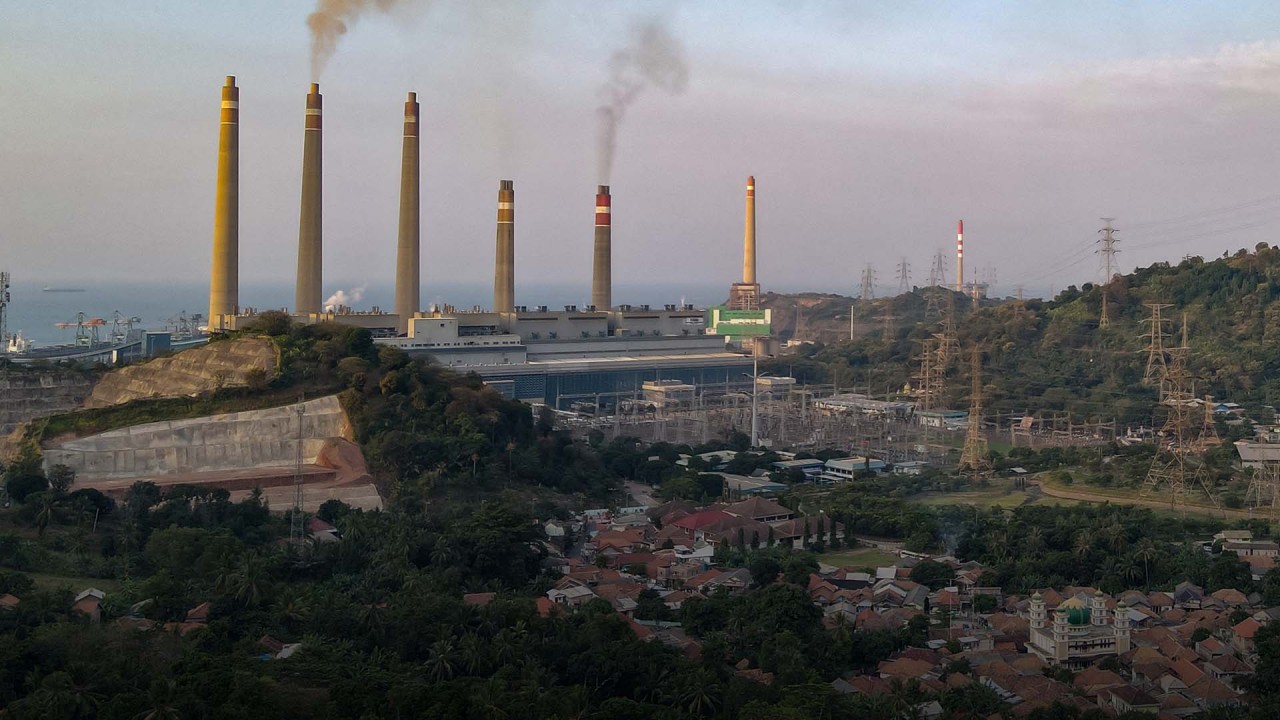
Can a US$15 billion climate finance deal nudge Indonesia to ditch coal?
- Under the just energy transition partnership, the US and Japan would give at least US$15 billion to help Indonesia accelerate efforts to shift away from the fossil fuel
- The green deal could be announced during next week’s G20 meetings in Bali after roughly a year of negotiations
A “just energy transition partnership,” or JETP, could be announced as soon as Tuesday during the Group of 20 meetings in Bali after roughly a year of negotiations, according to several people familiar with the plans, who asked not to be named because the details aren’t yet public.
The deal would enable Indonesia to accelerate efforts to close excess coal power generation capacity, and to limit its pipeline of coal power projects, factors that are currently thwarting the development of renewable energy, the people said. Some details could change before an announcement is made, according to the people.
A financing deal will be announced next week, Indonesia’s Finance Minister Sri Mulyani Indrawati said on Friday. “I do hope the size is going to be big enough to create confidence in terms of delivering the transition of energy,” she said.
How Indonesia can use G20, Asean platforms to lead climate change efforts
A spokesperson for the US Treasury Department declined to comment. Japan’s foreign ministry and representatives from Indonesia’s finance and energy ministries didn’t immediately respond to requests for comment.
Indonesia recently stepped up its emissions reduction targets with plans for more aggressive greenhouse gas cuts by 2030, and has set out a goal of reaching net-zero by 2060 by developing more solar, geothermal and nuclear power.
Coal currently dominates the nation’s economy, accounting for more than half of the country’s electricity and is a key driver of growth – Indonesia is the world’s top exporter of thermal coal.
However, unlike the South African deal, which was hastily advanced at last year’s climate summit, the Indonesian JETP is the product of a full year of negotiations and the initial framework is more detailed, according to some of the people.
Indonesia’s abundance of thermal coal and large volume of potential power plant projects have long been cited as a barrier to the nation bringing on more capacity in renewables.
China’s clampdown on new coal plants will hit these Asian countries hardest
State-run electricity utility Perusahaan Listrik Negara, or PLN, has a pipeline of about 13.7 gigawatts of new coal generating capacity under construction or development.
Under the JETP, some of those new coal plants would not be built and total new coal power capacity additions would shrink to about 10 gigawatts, some of the people said. PLN didn’t immediately respond to a request for comment.
It’s not immediately clear how many existing coal plants PLN would commit to closing early under the deal, though company executives previously have identified 6.7 gigawatts for potential early retirement.


